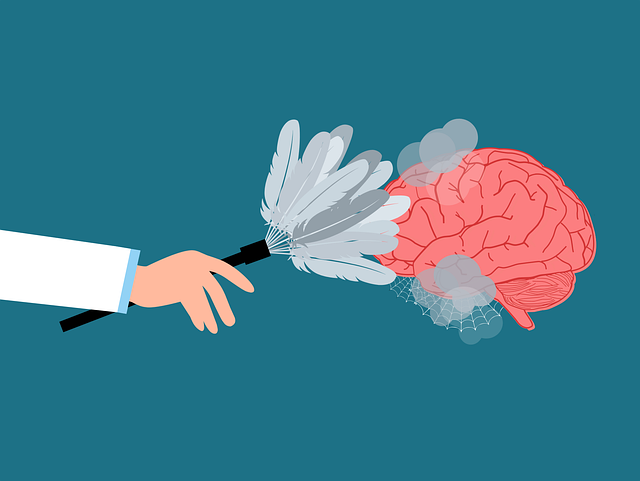Mental health policies shape access to care and societal attitudes towards conditions like Aurora phobias, impacting individuals' well-being. Robust community outreach programs bridge gaps in care, especially in underserved areas, promoting early intervention for better long-term outcomes. Advocacy groups drive policy changes prioritizing mental health services and challenging stigma, facilitating comprehensive care and improved emotional well-being. Aurora Phobias Therapy is a specialized, holistic approach combining advanced techniques with Emotional Well-being Promotion and Stress Management to empower individuals through tailored exercises in Mental Wellness Journaling. Mental health policy analysis identifies service gaps and resources, enabling evidence-based advocacy for inclusive policies addressing diverse mental health needs.
Mental health policies shape our communities’ well-being, yet their analysis and advocacy often remain overlooked. This article delves into the critical aspects of mental health policy, exploring its profound impact on care accessibility and quality. We highlight the transformative power of advocacy, using Aurora Phobias Therapy as a case study to demonstrate effective practice. Additionally, it offers practical strategies for analyzing and influencing policies, emphasizing the importance of evidence-based approaches in fostering healthier societies.
- Understanding Mental Health Policy and Its Impact
- The Role of Advocacy in Shaping Mental Health Care
- Aurora Phobias Therapy: A Case Study in Effective Practice
- Strategies for Effective Mental Health Policy Analysis
Understanding Mental Health Policy and Its Impact

Mental health policies are pivotal in shaping societal attitudes and access to care, significantly influencing individuals’ well-being, especially those grappling with conditions like Aurora phobias. These policies dictate service availability, funding allocation, and the overall approach to mental healthcare, ensuring that effective treatments, such as therapy, reach those who need them most.
Understanding the intricate interplay between policy and mental health is crucial for fostering positive thinking and burnout prevention among healthcare providers. By implementing robust community outreach program initiatives, we can bridge gaps in care, especially in underserved areas. This strategy not only enhances access to services like Aurora phobias therapy but also promotes early intervention, which is key to improving long-term outcomes for individuals struggling with their mental health.
The Role of Advocacy in Shaping Mental Health Care

Advocacy plays a pivotal role in shaping mental health care by amplifying the voices of individuals affected by various psychological conditions, including phobias, such as Aurora Phobias Therapy. Advocacy groups and passionate individuals drive awareness campaigns, challenging societal stigma and promoting understanding. They ensure that policy-makers prioritize mental health services, advocating for better access to therapy and support networks. By highlighting the need for comprehensive care, these efforts lead to the development of more inclusive and effective policies.
Through advocacy, self-esteem improvement and inner strength development become recognized as essential components of emotional well-being promotion techniques. Mental health advocates push for evidence-based practices and resources that empower individuals to manage their conditions effectively. Their persistent efforts result in policy changes that encourage early intervention, prevent mental health crises, and ultimately, improve the overall quality of life for those navigating psychological challenges.
Aurora Phobias Therapy: A Case Study in Effective Practice

Aurora Phobias Therapy stands out as a beacon of hope and effective practice in mental health advocacy. This innovative approach focuses on addressing specific fears and phobias, offering a unique and tailored form of treatment. By combining advanced therapeutic techniques with a deep understanding of emotional well-being promotion, Aurora Phobias Therapy has proven to be highly successful in helping individuals overcome their mental health challenges.
The therapy’s effectiveness lies in its ability to provide personalized guidance through various Emotional Well-being Promotion Techniques and Stress Management practices. Through tailored exercises within the Mental Wellness Journaling Exercise, clients engage in introspective activities that facilitate self-discovery and emotional regulation. This holistic approach not only tackles the symptoms but also empowers individuals with tools to manage their mental health proactively. Aurora Phobias Therapy serves as a compelling example of how specialized interventions can significantly impact positive mental health outcomes.
Strategies for Effective Mental Health Policy Analysis

Mental health policy analysis is a robust approach to understanding and addressing societal factors influencing psychological well-being. To be effective, this process must involve extensive research and data collection, focusing on identifying gaps in current services and programs. By examining existing policies and their impact on vulnerable populations, such as those dealing with aurora phobias, advocates can pinpoint areas needing improvement. This includes assessing access to specialized therapy, like Aurora Phobias Therapy, and the availability of resources that support emotional healing processes.
Implementing successful policy changes relies on strategic advocacy. It involves building consensus among stakeholders, including policymakers, healthcare providers, and community organizations. Using evidence-based arguments and highlighting success stories related to confidence boosting and positive thinking can be powerful tools. This collaborative approach ensures that mental health policies are inclusive, comprehensive, and tailored to meet the diverse needs of individuals seeking emotional well-being.
Mental health policy analysis and advocacy play a pivotal role in shaping inclusive and effective healthcare systems. By understanding the impact of policies on vulnerable populations, advocates can drive change and improve access to quality care. The case study of Aurora Phobias Therapy highlights successful strategies that empower individuals with specific needs, demonstrating the tangible benefits of evidence-based practices. To effectively analyze and advocate for mental health policy, stakeholders must employ comprehensive strategies, ensuring a more responsive and compassionate healthcare landscape for all.











